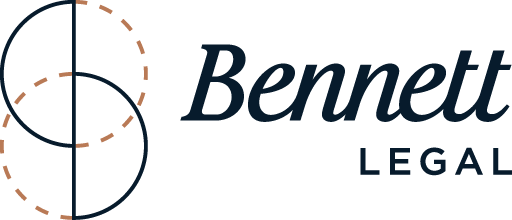“Free” Isn’t Always Free
It sounds perfect: solar panels on your home, zero money down, immediate energy savings — and you don’t pay a dime up front.
But if you’ve been pitched free solar panels in Florida, New Jersey, California, Texas, or any other state, you may have already been targeted by one of the most common solar scams:
The zero‑down contract that can cost you tens of thousands of dollars — or even block you from selling your home.
In this guide, we’ll expose the hidden costs, legal traps, and manipulative tactics behind the free solar panels scam and explain how to spot one before it traps you. If you’re already locked in, we’ll show you your options for getting out.
How ‘Free Solar’ Manipulates Innocent Homeowners
Predatory solar reps use psychology as much as salesmanship. Here’s how they get good people into bad deals:
False urgency
They create an artificial deadline: “This neighborhood program ends today” or “Only 5 spots left in your zip code.” The intent? Make you sign before asking questions.
Authority mimicry
They introduce themselves as “working with your utility” or “sent by the state solar program” — implying government or regulated backing that doesn’t exist.
Selective truth
They talk only about monthly savings while burying escalator clauses, lien language, and transfer restrictions deep in the contract.
Compassion play
They target elderly or low‑income families with phrases like “This is how we help the community” — framing the deal as a humanitarian benefit.
Jargon overload
They drown you in kilowatt‑hours, offsets, and capacity factors to overwhelm your ability to spot financial traps.
Legal note: Many state consumer protection laws — such as the NJ Consumer Fraud Act and the Texas Deceptive Trade Practices Act — consider this omission or distortion of material facts deceptive, even if some of the statements are technically true.
How the ‘Free Solar’ Pitch Hooks You
If you’ve had a door knock, a Facebook ad, or a phone call offering “no cost solar panels”, here’s what’s really happening:
Zero‑Down Lease or Power Purchase Agreement (PPA)
You don’t pay upfront — instead, you agree to buy the system’s power from the installer (PPA) or lease the panels for 20–25 years.
Installer‑Arranged Financing
A lender pays the installer for your system, and you make fixed (or escalating) payments for 15–25 years.
Baited with Incentives
Sales reps claim you’ll “get paid” through rebates, tax credits, or “government programs.” In reality, those benefits often go to the leasing company, not you.
Homeowners bite because:
- The upfront cost barrier disappears.
- Solar seems like an instant upgrade for the home’s value.
- There’s the feel‑good factor of “helping the environment.”
But the pitch leaves out the traps buried in the contract.
How? The Reality of ‘Free Solar’ Lease Nobody Tells You About
The zero‑down solar lease or PPA is a long‑term commitment — often 20–25 years — and once you sign, getting out is extremely hard.
Here are the top pitfalls we see in these contracts:
Escalator Clauses
Payments increase every year by 2–4%. That $150/month lease today could easily be $280/month before the term ends.
No Performance Guarantee
If the panels produce less power than promised, you pay the difference on your electric bill and still owe the full lease amount.
Roof Restrictions
Want to replace or repair your roof? The contract may require the leasing company to remove and reinstall the panels — at your expense.
Sale Transfer Headaches
If you sell your home, the buyer must meet the leasing company’s qualification standards — and many buyers won’t bother.
Ballooning Costs During Moves
Some leases demand a buyout if you move before the term ends — often tens of thousands of dollars.
Hidden Clauses That Can Cost You Everything
Transfer restrictions
If your contract says only “qualified buyers” can assume the lease, you’re giving the leasing company veto power over your home sale.
Performance disclaimers
Wording like “System output not guaranteed” means you bear the risk of production shortfalls.
UCC‑1 lien clauses
A Uniform Commercial Code lien allows the finance company to secure its interest in your panels. The lien can derail refinancing or selling your home.
Legal reality:
- These clauses are enforceable if they’re disclosed, even in fine print.
- Most challenges require proving fraud or statutory violations — a high bar without evidence.
The True Cost: How ‘Free’ Solar Drains Your Wallet
Here’s the hard math:
- Total Payments > System Cost: Over 20–25 years, lease/PPA payments can add up to 150–200% of the system’s retail value.
- Lost Sale Opportunities: A 2022 NAR survey showed prospective buyers walked away from properties with untransferable or high‑cost solar leases.
- Paying for Downtime: If the panels fail and the leasing company delays repair, you still owe your monthly lease.
- Roof & Maintenance Costs: Zero‑down deals rarely include full‑term roof maintenance — and re‑roofing mid‑lease means paying removal and reinstallation, often $5,000–$10,000.
How to Spot a Free Solar Scam Before You Sign
- Ask “Who owns the panels?”: If it’s not you, you’re in a lease or PPA.
- Look for liens: Search for the words “UCC‑1,” “security interest,” or “fixture filing.”
- Check payment terms: If they include a % increase per year, calculate the lifetime cost.
- Demand performance guarantees: If there aren’t any, your “savings” are speculative.
- Ask about home sale transfer terms: Contracts with strict buyer qualification rules are a huge red flag.
Legal Remedies for ‘Free Solar’ Victims
- Fraud and misrepresentation claims: Requires proving false statements or material omissions.
- Consumer protection statutes: E.g., NJ CFA, TX DTPA, CA Business & Professions Code §17200.
- Breach of contract: If the company fails to perform agreed services like maintenance.
- Arbitration navigation: Many leases require arbitration — an attorney can still negotiate or file claims there.
State‑by‑State Risks and Protections
| State | Known Risks | Consumer Protections | Key Agency |
| Florida | Aggressive door‑to‑door free solar schemes with hidden liens | Minimal solar-specific contract disclosure rules | Florida Attorney General – Consumer Protection |
| New Jersey | Misleading claims about “state solar programs,” escalators hidden in fine print | NJ Consumer Fraud Act (treble damages possible) | NJ Division of Consumer Affairs |
| Texas | No industry‑specific laws; deceptive sales claims fall under TX DTPA | TX Deceptive Trade Practices Act | Texas Attorney General – Consumer Protection |
| California | Strongest disclosure laws for solar leases/PPAs | California Solar Consumer Protection Guide | California Contractors State License Board |
| New York | Loan/lease disclosure rules; no bankruptcy or lien‑specific protections | NY General Business Law §349 | NY Dept. of State – Consumer Protection |
| Arizona | Required 10–30 day lease transfer process on home sale | Arizona Solar Rights Law | Arizona Registrar of Contractors |
| Pennsylvania | No-cost solar pitch common in rural areas | PA Unfair Trade Practices & Consumer Protection Law | Pennsylvania Attorney General |
| Illinois | Federal program impersonation scams | Illinois Consumer Fraud and Deceptive Practices Act | Illinois Attorney General – Consumer Bureau |
| Massachusetts | Targeting seniors via Facebook ads | MA Consumer Protection Act | Massachusetts Office of Consumer Affairs |
| Nevada | Escalators not clearly disclosed | NV Clean Energy Disclosure form | Nevada Public Utilities Commission |
What to Do If You’re Already in a Zero‑Down Solar Contract
- Get legal review — A solar panel fraud attorney can identify illegal clauses or missing disclosures.
- Ask for a payoff or buyout quote — Know the cost to exit early.
- Address liens early if trying to sell or refinance.
- Negotiate with the finance/lease company — In some cases, you can transfer or restructure.
- File complaints with state AG or FTC if misrepresentation occurred.
From Zero-Down Promises to Long-Term Problems
If you signed up for what was pitched as “free solar” only to discover liens on your home, escalating payments, or restrictions that make selling nearly impossible, you are not alone. Homeowners across Florida, New Jersey, California, Texas, and beyond have been trapped by the same zero-down solar contracts that promised savings but delivered stress and financial strain.
At Bennett Legal, we understand how overwhelming it feels to realize that your dream of affordable solar has become a burden on your home and credit. Our attorneys have seen the hidden escalator clauses, UCC-1 liens, and restrictive transfer terms buried in these contracts — and we know how to fight them.
Whether you are considering signing a zero-down solar deal or you are already locked into one, you still have options. We help clients challenge deceptive contracts under state consumer protection statutes, negotiate fair resolutions, and in many cases remove liens that block refinancing or home sales.
Your home should never be held hostage by a misleading “no-cost” solar agreement. Bennett Legal is here to review your contract, explain your rights, and protect your financial future.
📞 Contact Bennett Legal today for a consultation. You do not have to face predatory solar contracts on your own.
FAQs
Are free solar panels a scam?
Many offers are misleading — you nearly always pay over time through a lease, PPA, or financing.
How does zero‑down solar actually work?
You avoid upfront payment but commit to long‑term monthly obligations, often with cost escalations.
Can I get out of my free solar contract?
It’s difficult; options include contract buyout, negotiated release, or legal challenge.
What if my “free solar” provider goes bankrupt?
Leases and loans are assets — they’ll be sold to another company who can enforce them.

